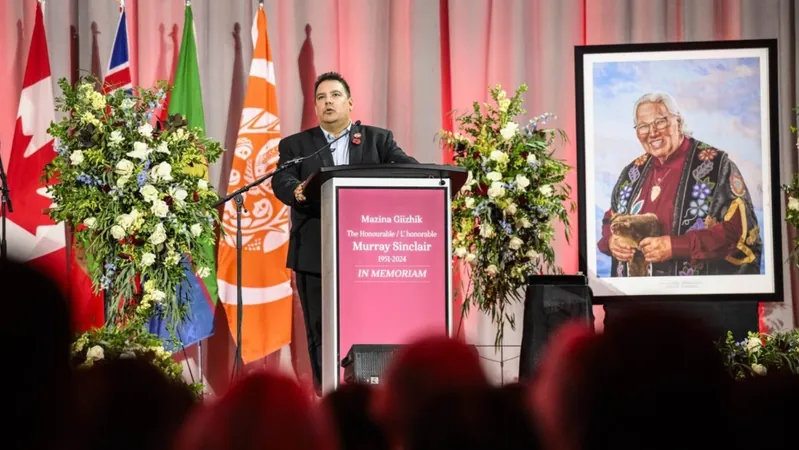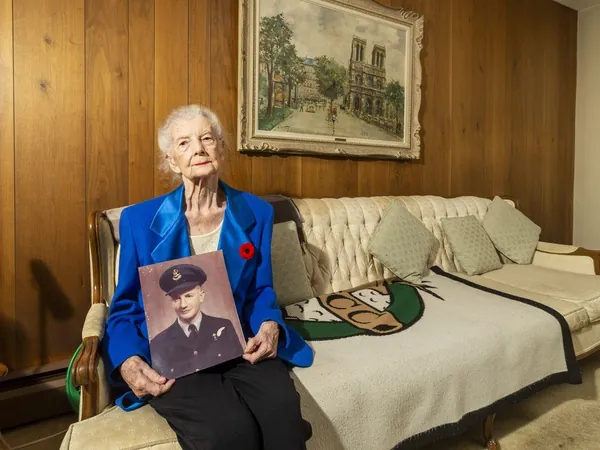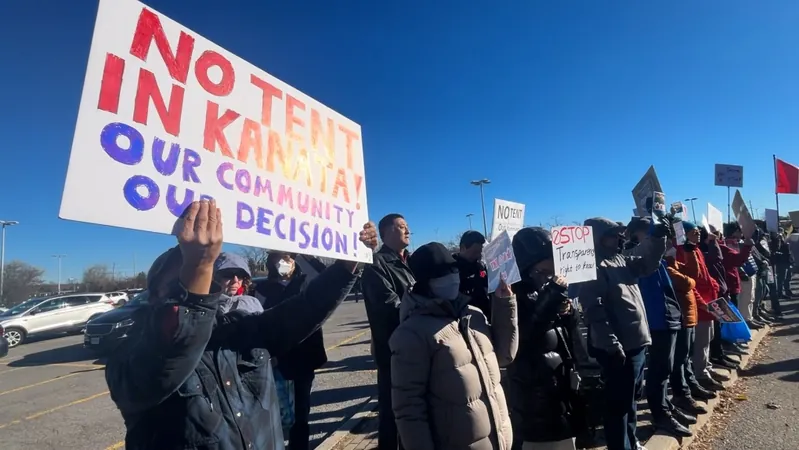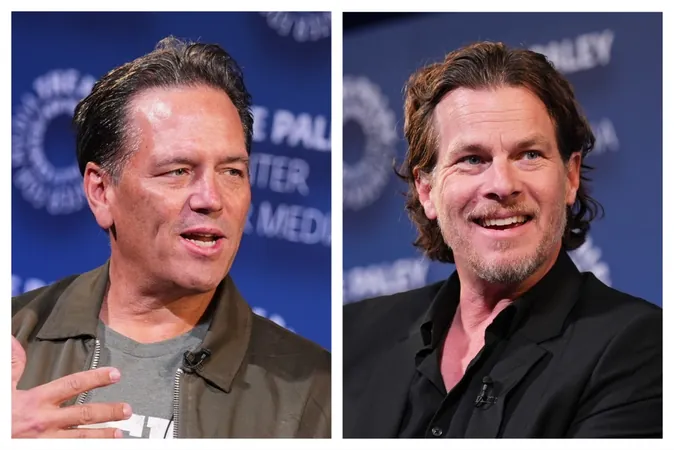
Remembering Murray Sinclair: A Legacy of Change and Compassion Honored in Heartfelt Memorial
2024-11-11
Author: Charlotte
Winnipeg – An outpouring of love and respect filled the Canada Life Centre on Sunday as family, friends, and admirers gathered to honor the life of Murray Sinclair, a groundbreaking figure in Canadian history. The former judge, senator, and chair of the Truth and Reconciliation Commission passed away at the age of 73, leaving behind a profound legacy that continues to resonate across the country.
During the emotional memorial, Sinclair's son, Niigaan Sinclair, reflected on his father's trailblazing spirit. "He was a first in every room he walked into," he noted, emphasizing the widespread impact of his father's work. Niigaan recounted how it was common for strangers to approach Murray in public spaces, often expressing gratitude for the role he played in their lives, even including some he had sentenced in his time on the bench.
Prime Minister Justin Trudeau, who attended the service, praised Sinclair as a mentor who had a transformative influence on the nation. "He became to me a wise teacher, a trusted confidant, and a friend who challenged me to always do better," Trudeau shared. "Murray Sinclair changed this country for the better."
A sacred fire was lit outside the Manitoba legislature as part of the tribute to show respect and remembrance. Indigenous leaders, politicians, and community members attended the ceremony, which was notably the first national commemorative service held for an Indigenous person in Canada.
Sinclair's work as the chair of the Truth and Reconciliation Commission made waves in Canada, where he listened to the testimonies of thousands of residential school survivors. His efforts culminated in a comprehensive report that included 94 calls to action aimed at addressing the injustices faced by Indigenous communities.
As Manitoba's first Indigenous judge and one of the few in Canada at the time, Sinclair faced prejudices that he turned into lessons of resilience. Niigaan recounted a memorable story from his father's early days on the bench, where a colleague insinuated that his appointment was a mere act of pity. "My father turned to him and said, 'You're only here because you're a white guy,'" Niigaan remarked, highlighting his father's ability to confront racism with wit and strength.
The memorial was marked by individuals donning orange shirts bearing the message “Every Child Matters,” symbolizing the fight for justice and recognition of the painful legacy of residential schools. The stage was adorned with notable items, including the Bentwood Box used by the Truth and Reconciliation Commission, which symbolizes the journey toward healing and understanding.
Governor General Mary Simon shared a poignant moment from her interactions with Sinclair, expressing how he provided comfort and trust during her own testimony at the Truth and Reconciliation Commission. "People felt a sense of trust and authenticity around him," Simon said, a nod to the openness he fostered among those who had faced immense trauma.
Murray Sinclair's story is not just one of personal achievement; it encapsulates the struggles and hopes of an entire culture. His traditional Anishinaabe name, Mazina Giizhik, meaning "One Who Speaks of Pictures in the Sky," reflects his ability to articulate the dreams and aspirations of Indigenous peoples. He endured racism but never wavered in his commitment to justice.
In closing, Manitoba Premier Wab Kinew shared heartfelt words about carrying forward Sinclair's legacy. He recounted how his own father was stripped of his Indigenous identity in a residential school, contrasting this with the pride he now takes in affirming his culture through the traditions he passes on to his own children. "Though we have lost our teacher, we have not lost his teachings," Kinew said, a poignant reminder that while Sinclair may be gone, his influence will guide future generations.
As the tributes continued to pour in from across Canada, it became abundantly clear that Murray Sinclair’s life wasn’t just about breaking barriers, but about fostering understanding, compassion, and hope. The profound impact of his legacy will echo for years to come, as the nation strives towards truth and reconciliation.









 Brasil (PT)
Brasil (PT)
 Canada (EN)
Canada (EN)
 Chile (ES)
Chile (ES)
 España (ES)
España (ES)
 France (FR)
France (FR)
 Hong Kong (EN)
Hong Kong (EN)
 Italia (IT)
Italia (IT)
 日本 (JA)
日本 (JA)
 Magyarország (HU)
Magyarország (HU)
 Norge (NO)
Norge (NO)
 Polska (PL)
Polska (PL)
 Schweiz (DE)
Schweiz (DE)
 Singapore (EN)
Singapore (EN)
 Sverige (SV)
Sverige (SV)
 Suomi (FI)
Suomi (FI)
 Türkiye (TR)
Türkiye (TR)